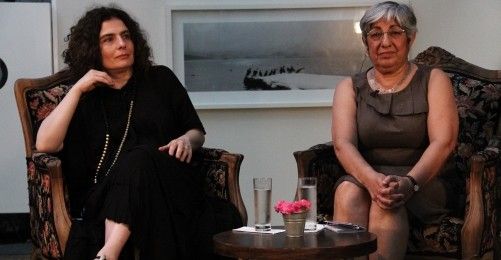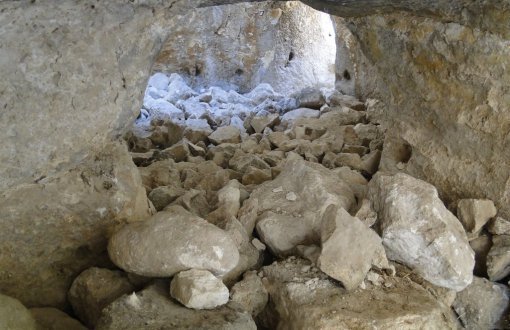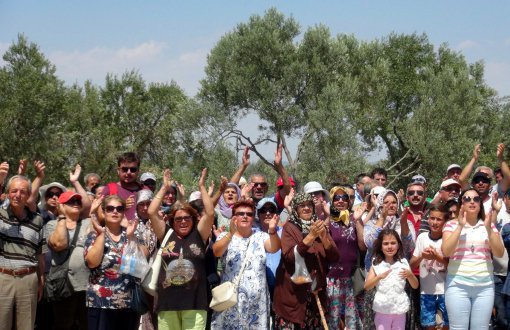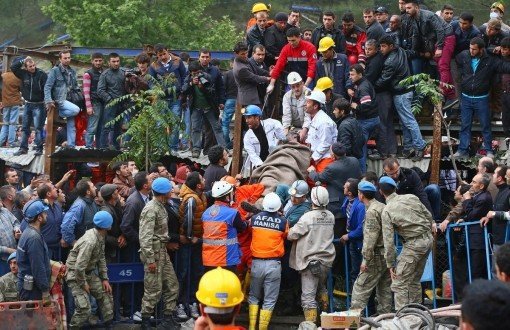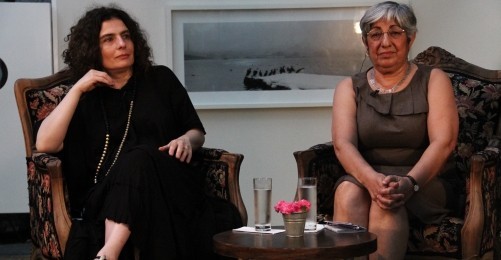
Writer, human rights activist and lawyer Fethiye Çetin and Armenian actress Arsinée Khanjian spoke about what it means to be an Armenian both in Turkey and in the Diaspora in a series of travelling programs called "Climbing the Mountain" launched by the Civilitas Foundation and Anatolian Culture (Anadolu Kültür.)
The first series of programs took place in Berlin on Sept. 4, while the second one hit the screen in Istanbul on Sept. 6. The third run will take place in Yerevan on Sept. 13 and will be livestreamed, videotaped and shared on a trilingual website.
The programs aim to shed light on the personal aspect of Armenian-Turkish relations and relate the mutual prejudices between Armenians and Turks, and people whose families were forced to leave Anatolia and those who remained behind.
Sweeping off the truth
"My grandparents were citizens of the Ottoman state. I was born in Beirut. I climbed the mountain; I climbed Ararat. This is very important for people born in places outside of [their native lands] against their own will and [to help them] construe an identity. As I climbed Mt. Ararat, there I found truth and justice. I buried on that mountain the pictures of my grandparents who were born in Erzurum and the gloves of my mother who died at an early age," said actress Arsinée Khanjian, a Canadian citizen of Armenian descent who was born in Lebanon.
Khanjian had played the role of "Ani" in director Atom Egoyan's movie "Ararat."
Lawyer and human rights activist Fethiye Çetin, the author of the book "My Grandmother," ("Ananem") then took the floor:
"I was born [in the northeastern province of Elazığ.] I began living with my muslim grandparents at a young age. Then I became a socialist. One day, my grandmother took me on her lap and told me of a story I had never heard before with gestures that looked as if she were trying to swab down the dirt over her skirt. It was as if she was sweeping with her hands all that she had gone through at the age of nine. I believed my grandmother. She was telling the truth," said Çetin.
Fethiye Çetin is also known for having acted as a lawyer for the family of Hrant Dink, a Turkish-Armenian journalist murdered in broad daylight in Jan. 19, 2007 before his office in Istanbul. Only two suspects received sentences in connection with his assassination, while other suspects and a number of officials who were implicated in the case received no penalties at all.
Armenian women forced into marriages
"Many local Kurdish guides I met near Mt. Ararat approached me and said their grandmothers were Armenians, expecting me to take some delight in this. Out of astonishment, I did not know what to say, however. What they were saying proved an entire reality; those grandmothers had been forcibly married off, and there was not a single Armenian grandfather to be found," Khanjian said.
"Now that I have a double identity, I can speak with ease," lawyer Çetin said, adding that it was difficult for her to share her story even with her socialist friends in the beginning.
"It was not out of fear, but we could not tear down the taboos we ourselves had created. We bore the policy of denial as part of that muted silence. For that reason, I now bear a responsibility. My grandmother had loaded the dirt she had swept off of her skirt onto my shoulders, and I do not wish to transmit this burden to future generations," she said.
Khanjian also added there were thousands of books about the Armenian Genocide but that she preferred to express the issue through artistic means:
"When we shot the movie 'Ararat,' this was perceived in Turkey as propaganda material. By contrast, however, this movie was not about the genocide. Its main theme was about Turkey's ongoing policy of denial," she said. (NV)





